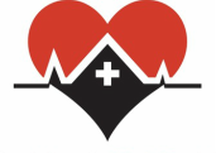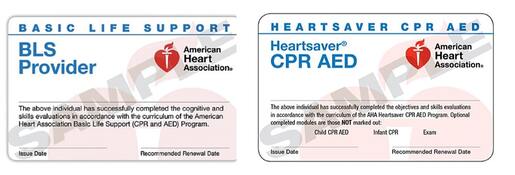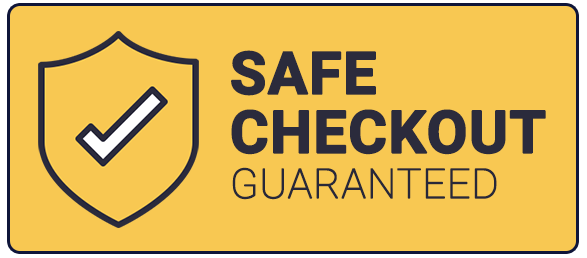Do You Know How to Check Your CPR Card Status?So you have taken the CPR or First Aid class and mastered the skills, and possibly even used your skills in real life? However, do you not know if you are still CPR certified? With everything moving so quickly nowadays it is easy to forget your CPR certification due date and when to renew your CPR certification. But remember that it's important to remain current on your certification and learn those updated CPR and First Aid training techniques. Additionally, once you’ve completed the training course, you might think that you are all done. On the contrary, a CPR certification does expire. So don't forget to understand how long your certification is valid for, how to check your status, and what to do if it has become void. Why Does A Certification Card Expire?Taking a CPR or First Aid class is different than participating in a hobby or a sporting event as you you can't practice it everyday! Further, if you are not a healthcare provider where you might use CPR and First Aid skills at work, you might not ever use the lifesaving skills you've just learned. As a result, it is possible to forget how to administer CPR or even use an AED. After a few years, it is important to get re-certified and go over these critical techniques again as science changes and new information becomes available. Staying current with your CPR or First Aid certification allows you to be knowledgeable of not only the latest and greatest best practices but also advancements in science. How Long Does a certification last?So you might ask “how long is CPR certification good for?” The answer: the American Heart Association and American Red Cross CPR certification is valid for 2 years from the date you complete the training course. After that date, either your certification becomes void, or you can take another class to maintain certification and keep your skills sharp. Please remember that the certification expires 2 years from the date of course completion, not necessarily from the day you receive the card. At Help-A-Heart CPR, we provide our students with their certification card within 24-48 hours after the class. Why is it important to renew your cpr certification?Most healthcare providers such as nurses, physicians, and paramedics are required to maintain a BLS certification (BLS is the healthcare equivalent for CPR and stands for Basic Life Support for Healthcare Providers). Consequently, if you are in the medical field your employer will most likely require proof of BLS certification. On the contrary, for the general public whose jobs might not require a CPR or First Aid certification, it might be easy to accidently forget and let your current CPR or First Aid certification expire. Don't let that happen as it’s still essential to take renewal classes and maintain your certification. Regardless of whether an active CPR or First Aid certification is required by your employer, it’s always a good idea to add to your existing knowledge and refresh those important life-saving skills. A CPR or First Aid renewal class will help provide clarity and maintain your own CPR expertise. Renew Your CPR certification with help-a-heart cpr!Now that you know how to check CPR certification status, did you find out that your CPR certification has expired? Don't fret. It’s easy to renew your certification with Help-A-Heart CPR! The course typically takes between 2.5 hours and 4 hours depending on what certification you need to complete and there are various options to choose from. Upon completion of the course, you’ll also receive a certification card within 24-48 hours that renews your status. Sign up for a course here: CPR & First Aid Training.
If you’ve never been CPR certified, don't waster another minute. Our CPR Certification Classes are taught by medical professionals who have actually used CPR in the field. With real-world examples, engaging lessons, and hands-on practice, we create a positive, fun learning environment for our students. You’ll learn incredible life-saving techniques, including how to administer CPR and proper AED usage. So, what are you waiting for? Sign up for a Help-A-Heart CPR course today! Give us a call at (210) 380-5344 or register online anytime at www.helpaheartcpr.com.
Comments
Rescue Breathing vs. CPR-The Basic Difference?What is a Rescue Breath?Rescue breathing can be mouth-to-mouth breathing or mouth-to-nose breathing if the mouth is seriously injured or can't be opened. Current recommendations suggest performing rescue breathing using a bag-mask device with a high-efficiency particulate air (HEPA) filter. It can be performed on its own or as one component of the larger CPR process. What is cpr?Cardiopulmonary resuscitation (CPR) is a lifesaving technique that's useful in many emergencies, such as a heart attack or near drowning, in which someone's breathing or heartbeat has stopped. The American Heart Association recommends starting CPR with hard and fast chest compressions. When Do you do cpr and rescue breathing?CPR and rescue breathing are commonly used together. However, sometimes you only need one or the other. Rescue breathing should be done in the event of respiratory arrest and/or when the patient or victim has stopped breathing. On the contrary, CPR should be facilitated when the victim has no pulse and is in cardiac arrest. Cardiac arrest and respiratory arrest often occur synonymously and so CPR rescue breaths are often administered in conjunction with chest compressions. Additionally, before doing rescue breaths, the rescuer first looks in the mouth and throat for any visible objects that may be blocking the airway and, if any are present, removes them. Get CPR Certified with Help-A-Heart CPR. Do you want to learn more about the difference between rescue breathing and CPR? Complete your CPR and first aid training with Help-A-Heart CPR! With small course sizes, knowledgeable instructors, and empowering classes, we can help you get CPR certified today––and potentially save a life! To learn more, give us a call today at (210) 380-5344 or fill out our online contact form.
|
AuthorDr. Tracy A. Jones is the CEO of Help-A-Heart CPR, LLC and an American Heart Association, ASHI, and American Red Cross Master Program Trainer, Instructor, & AHA Faculty Member located in San Antonio, Texas. Archives
June 2024
Categories |
Help-A-Heart CPR, LLC | 1747 Citadell Plaza Suite 101 | San Antonio, Texas 78209 | (210) 380-5344 | [email protected]
Copyright © Help-A-Heart CPR, LLC 2024
100% Certification Acceptance
We promise your employer, school, or agency will accept the certification card we issue to you. If there is a question of acceptance or validity, simply send us an email at [email protected] with full details. We will reach out to the individual/entity and provide accreditation information. If still there’s a question, we will provide you with a full refund of your class fee. It’s that simple.
We promise your employer, school, or agency will accept the certification card we issue to you. If there is a question of acceptance or validity, simply send us an email at [email protected] with full details. We will reach out to the individual/entity and provide accreditation information. If still there’s a question, we will provide you with a full refund of your class fee. It’s that simple.
|
Communities Served
ALABAMA: Birmingham
ARKANSAS: Fayetteville, Hot Springs, Jonesboro, Little Rock NEW MEXICO: Albuquerque TENNESSEE: Knoxville TEXAS: Amarillo, Arlington, Austin, Bandera, Bastrop, Boerne, Brownsville, Comfort, Converse, Corpus Christi, Dallas/Ft. Worth, Del Rio, Dripping Springs, El Paso, Floresville, Fredericksburg, Georgetown, Harlingen, Houston, Junction, Katy, Kerrville, Kingsville, Kingwood, Laredo, Lubbock, Lufkin, McAllen, Midland, New Braunfels, Odessa, Pleasanton, Round Rock, San Angelo, San Marcos, Schertz, Seguin, Taylor, Temple, Texarkana, Tyler, Universal City, Victoria, Waco, The Woodlands |
Why Choose Help-A-Heart CPR?
1. Flexible Scheduling
2. On and Off Location Training Available 3. Casual, Fun Atmosphere 4. Best Price Guarantee 5. All Instructors are AHA and/or ARC certified 6. 5 Star Google Reviews 7. Blended Learning (Online & Skills Check) Available 8. Meets OSHA & College CPR Requirements 9. Get Certified Within 3-4 Hours 10.Certification Is Good For Two Years 11. Official AHA/ARC/ASHI Training Site 12. High Quality Safety Training! |









